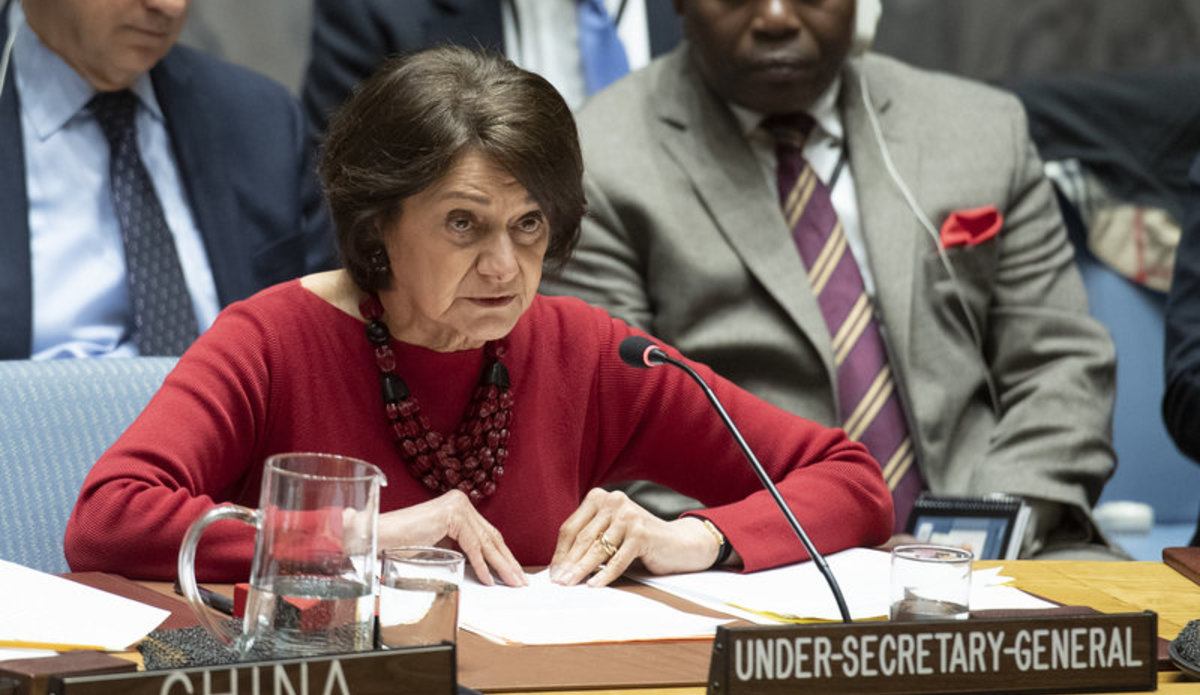Thank you, Mr. President.
Less than a month ago, when I last briefed the Security Council on the situation in Ukraine, I brought to the Council’s attention the reports of increased tensions in the Sea of Azov and underlined the need to avoid any risk of escalation, provocation or miscalculation. Regrettably, a serious security incident took place near Crimea, close to the Sea of Azov, only yesterday. I wish to underline that the United Nations currently cannot independently verify the circumstances surrounding the incident. However, reports indicate that on 25 November, an incident involving three Ukrainian vessels and at least one Russian vessel took place near the Kerch Strait when the former attempted to enter the Sea of Azov. A number of Ukrainian sailors, though the exact number remains unclear, were reportedly injured in the event. Ukraine claims that it had previously notified the Russian Federation of its intent to sail these vessels to the Ukrainian port of Mariupol in the Sea of Azov, which requires entry through the narrow Kerch Strait. The Russian Federation, meanwhile, claims that Ukraine has provoked the incident and that Russia acted in accordance with international law. According to media reports, the Ukrainian ships and their personnel are currently being held by the Russian authorities. Ukraine’s National Security and Defence Council has since recommended the declaration of Martial Law. We understand that the decision remains subject to ratification by the Verkhovna Rada which, is meeting today.
Mr. President,
The waters of the Sea of Azov were claimed as being historically internal waters of both Ukraine and the Russian Federation, where vessels of the two countries have enjoyed freedom of navigation. However, tensions have risen in and around these waters since the annexation of Crimea in 2014, which has been the subject of several General Assembly resolutions. In September 2016, arbitral proceedings under the United Nations Convention on the Law of the Sea (UNCLOS) were instituted by Ukraine against the Russian Federation with regard to a “dispute concerning coastal state rights in the Black Sea, Sea of Azov, and Kerch Strait”. The Russian Federation argues that the Sea of Azov and the Kerch Strait are not subject to the UNCLOS Arbitral Tribunal.
Mr. President,
The United Nations is deeply concerned about this escalation of tensions, which is taking place in the broader context of the conflict in eastern Ukraine and the annexation of Crimea. In our last briefing to the Council, we urged all parties to avoid any unilateral steps that could deepen the divide or depart from of the spirit and letter of the Minsk Agreements. In that context, I wish to reiterate that the UN fully supports the lead role of the Normandy Four, the Trilateral Contact Group, the OSCE and other key actors to find a peaceful settlement. I also wish to reiterate our call for renewed and constructive action by all concerned to overcome the apparent impasse in diplomatic negotiations. The UN underlines the need to fully respect the sovereignty and territorial integrity of Ukraine, within its internationally recognized borders, in accordance with relevant General Assembly and Security Council resolutions.
Regrettably, yesterday’s incident only threatens to cause the situation in and around Ukraine to deteriorate further. We strongly urge both the Russian Federation and Ukraine to refrain from any ratcheting up of actions or rhetoric and remind both of the need to contain this incident so as to prevent a serious escalation that may have unforeseen consequences.
At this juncture, the immediate de-escalation of tensions in the Sea of Azov and the Black Sea is required. It is critical that earnest attempts are made to find a peaceful settlement to the situation, based on the legal means available and in accordance with the UN Charter.
Thank you.

